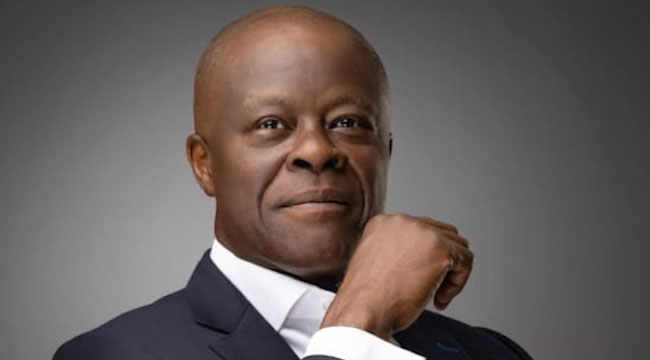The Minister of Finance and Coordinating Minister of the Economy, Mr. Wale Edu, by now knows that he must get his priorities right from the word go, especially with the government’s policies of subsidy removal and floating of the naira, which have led to hardship among citizens. He has to raise the economy from the doldrums where it is currently, to a level of vibrancy, where Nigerians can feel the positive impacts of his actions.
Daily Trust congratulates him on his appointment. Indeed, Edu is not new to this sort of role, as he was a commissioner for finance in Lagos State for eight years and we hope that he brings his expertise to bear on the new task. The previous government bequeathed an economy in tatters, ruined by years of rudderless leadership and mindless pillaging of the nation’s resources. He has admitted this much, having noted that the last time the Nigerian economy experienced stability was about ten years ago.
The economy, in plain language, is in shambles. A snapshot of the economy now shows the magnitude of the challenges he faces. Inflation is at 24% and is headed northward. The economic growth rate stood at 2.51 per cent by the end of the second quarter of this year. Although this was slightly higher than 2.31% in the first quarter, it was far below the 3.52% achieved in the last quarter of 2022. The Monetary Policy Rate is 18.75%, with a very high unemployment rate as well.
Without any doubt, citizens are hungry and hurting. They are also angry, having waited in vain to see improvements in their material lives.
- Shettima inaugurates National Council on Nutrition
- Lassa fever: Nigeria graduates first clinical management fellows
We note that the president has already signed four Executive Orders on the economy; two of them are the 5% excise tax on telecommunication services and the excise duty on locally made products, and the Green Tax suspension. These are intended to address the negative impacts of multiple taxation and other anti-business inhibitions. But the government must do more.
The minister, therefore, has to take steps to beef up the economy. The immediate task is to work with all levels of government to ensure that effective palliative measures are put in place to cushion the debilitating effects of subsidy removal, particularly in the area of high cost of food, transportation and school fees.
The next is to arrest the free-fall of the naira and its attendant effects. The minister should also work towards reducing inflation and high cost of money while ensuring harmony between money and fiscal policies. Let there be an immediate review of the key exchange and interest rate policies as they relate to various sectors of the economy, with a view to spurring production. He should beef up production and come up with policies on tax and VAT that can work.
The minister has to work in collaboration with the leadership of key financial institutions in the economy, including the Central Bank, to marshal out a policy framework to address the high cost in the economy. All these cannot be achieved without an industrial base that can support meaningful economic activities. For instance, how much industrial activity can be sustained in a country that generates only 13000 megawatts of electricity, but is able to utilise just around 5GW for a population of about 225 million? As his title entails, the coordinating minister must interface with his colleagues in charge of infrastructure – power, transportation, etc.- to speed up the revival of these sectors so they can begin to make positive impacts on the economy.
With the minister in charge of the economy, Nigeria should be able to adequately address the thorny issue of a national industrial policy, which will galvanise all the needed policies to drive the economy on a chosen trajectory of growth and development. As part of the move to actualise the above, Daily Trust at this moment recommends the establishment of industrial bases across the country, based on each region’s peculiarities. There should be policies aimed at helping Nigerians to maximise the benefits of the resource endowments of the different parts of the country.
As other countries that have pursued this policy, such as China, Mexico and others, the government should negotiate with foreign firms to build their plants here and produce for the domestic and export markets.
Such an industrial policy will at the same time create jobs at home and earn the much-needed foreign exchange from exports. One of the industries where this policy can be applied is the auto market. But one of the prerequisites for this and other activities is that the power sector must be sorted out to produce the required power.
There should be more coordination between the federal and state governments on diverse issues.
Most importantly, the minister must avoid the attitude of announcing policies before working out the details of their implementation. We wish the minister the very best.

 Join Daily Trust WhatsApp Community For Quick Access To News and Happenings Around You.
Join Daily Trust WhatsApp Community For Quick Access To News and Happenings Around You.